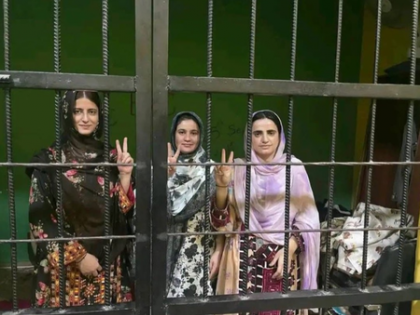EU urged to review Pakistan’s GSP+ status over worsening human rights abuses
By IANS | Updated: November 9, 2025 14:35 IST2025-11-09T14:30:54+5:302025-11-09T14:35:14+5:30
New Delhi, Nov 9 Mounting evidence of systematic human rights abuses in Pakistan, particularly in Balochistan, has prompted ...

EU urged to review Pakistan’s GSP+ status over worsening human rights abuses
New Delhi, Nov 9 Mounting evidence of systematic human rights abuses in Pakistan, particularly in Balochistan, has prompted renewed calls for the European Union to reassess Islamabad’s preferential trade status under the Generalised Scheme of Preferences Plus (GSP+).
Rights groups and observers warn that Pakistan’s record remains “highly problematic”, marred by enforced disappearances, arbitrary detentions, torture, and severe restrictions on freedom of expression.
According to a report by EU Today, such violations directly contradict Pakistan’s obligations under international conventions, including the International Covenant on Civil and Political Rights and the Convention Against Torture -- both core components of the GSP+ framework.
The report further adds that the situation in Balochistan is described as a “human rights black hole”, where state forces continue to suppress peaceful dissent.
Activists like Dr Mahrang Baloch, a leading voice against enforced disappearances, have faced repeated harassment and intimidation for organising peaceful protests.
Reports from rights organisations document a pattern of abductions, extrajudicial killings, and collective punishment targeting families of victims.
In recent weeks, the Zehri district has witnessed one of the worst escalations, with credible reports alleging a military siege involving tanks, helicopters, and armed drones.
Entire villages were reportedly destroyed, leaving civilians trapped without access to medical care or humanitarian aid -- acts that observers describe as “collective punishment” and grave breaches of international law.
Beyond Balochistan, religious minorities, including Christians, Hindus, Ahmadis, and Sikhs, continue to face systemic persecution.
Pakistan’s blasphemy laws, widely criticised for misuse, have led to mob violence, wrongful arrests, and deaths, with little government intervention or reform.
According to the report, human rights advocates are urging the EU to initiate an independent review of Pakistan’s compliance with its GSP+ obligations, engage with diaspora-led civil society groups, and pressure Islamabad to end disappearances and release peaceful protesters.
Critics warn that continuing to grant trade privileges despite clear violations “sends a dangerous message that economic interests outweigh human rights”.
They argue that the EU must ensure its trade policies reflect its core values -- accountability, rule of law, and justice for the people of Balochistan and Pakistan’s persecuted minorities.
Disclaimer: This post has been auto-published from an agency feed without any modifications to the text and has not been reviewed by an editor
Open in app